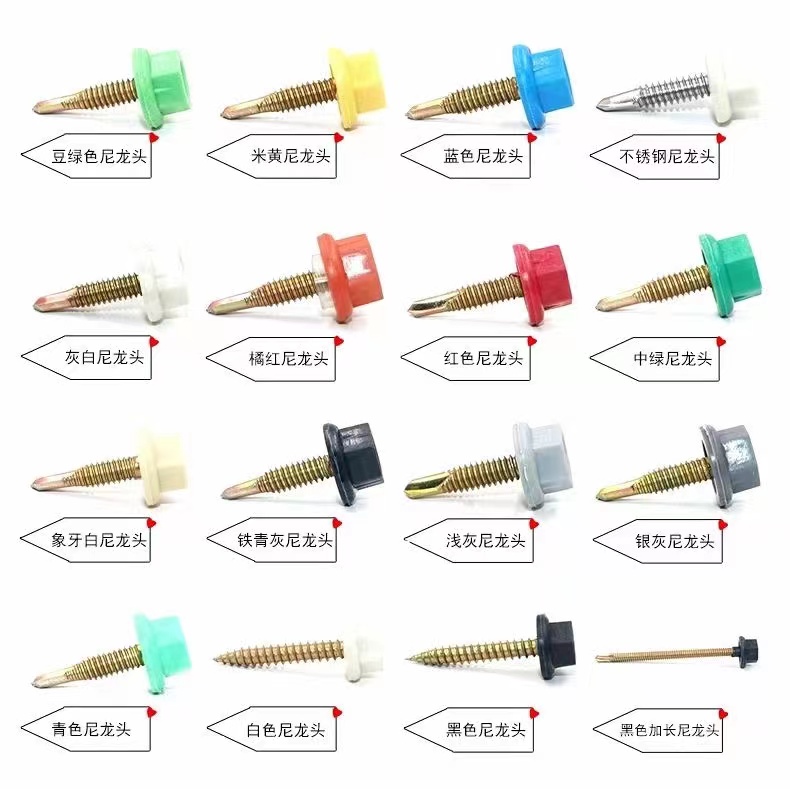High-Quality Self-Tapping Screws for Optimal Performance and Durability
Understanding Best Self-Tapping Screws A Comprehensive Guide
Self-tapping screws are a vital component in various construction and engineering applications, known for their ability to create their own hole as they are driven into materials. The best self-tapping screws, in particular, can enhance the effectiveness and durability of your projects. This article explores the characteristics, advantages, and application areas of high-quality self-tapping screws, as well as the importance of selecting the right type for your needs.
Characteristics of Self-Tapping Screws
Self-tapping screws are designed with a sharp point and threads that allow them to cut into materials without the need for pre-drilling a hole. The key features that might qualify these screws as best include
1. Material Composition High-quality self-tapping screws are often made from robust materials like stainless steel, carbon steel, or other corrosion-resistant alloys. This is crucial in applications where screws might be exposed to moisture or harsh environmental conditions.
2. Thread Design The design of the threads can significantly impact a screw’s performance. Fine threads are typically used for softer materials, while coarse threads are better for harder substances. Advanced self-tapping screws may feature a unique thread pattern that enhances grip and prevents loosening.
3. Point Style The point of a self-tapping screw can vary. Some are designed with a drill point to facilitate easier penetration into harder materials. Others may have a more blunt point for softer substrates. Selecting the right point style is crucial for maximizing driving efficiency.
4. Surface Treatment Many premium self-tapping screws come with special surface coatings that provide extra durability and resistance to rust and corrosion. Treatments such as zinc plating, black oxide, or even ceramic coatings can enhance longevity.
Advantages of Using the Best Self-Tapping Screws
Using high-quality self-tapping screws offers numerous advantages, including
- Efficiency These screws often reduce installation time, as there is no need for pre-drilling. This is particularly beneficial in assembly lines or when working in tight spaces where traditional screw techniques are cumbersome.
best self tapping screw images

- Versatility Self-tapping screws can be used in various materials, including wood, metal, and plastic, making them one of the most versatile fastening solutions available.
- Strong Hold A well-designed self-tapping screw can create a tight fit, maintaining structural integrity over time. This is especially important in applications requiring robust connections.
- Cost-Effective Although high-quality screws might come at a premium price, their durability and reliability can lead to savings over time by reducing the need for replacements and repairs.
Applications of Self-Tapping Screws
The applications of self-tapping screws are broad and varied. They are commonly used in
- Construction For securing sheets of drywall, metal frames, and hardwood flooring. - Automotive industries To fasten parts of engines and body panels, where strength and corrosion resistance are paramount.
- Electronics In the assembly of electronic devices where precision is key.
- DIY Projects Whether assembling furniture or building custom structures, self-tapping screws are a favorite for hobbyists and professionals alike.
Conclusion
Selecting the best self-tapping screws for your project can make a significant difference in performance and reliability. By considering factors such as material, thread design, point style, and surface treatment, you can ensure that your fasteners are up to the task. Whether for construction, automotive, electronics, or DIY projects, investing in quality self-tapping screws not only enhances efficiency but also extends the lifecycle of your work. Thus, make an informed choice when choosing self-tapping screws to experience the benefits they bring to your projects.
-
Top Choices for Plasterboard FixingNewsDec.26,2024
-
The Versatility of Specialty WashersNewsDec.26,2024
-
Secure Your ProjectsNewsDec.26,2024
-
Essential Screws for Chipboard Flooring ProjectsNewsDec.26,2024
-
Choosing the Right Drywall ScrewsNewsDec.26,2024
-
Black Phosphate Screws for Superior PerformanceNewsDec.26,2024
-
The Versatile Choice of Nylon Flat Washers for Your NeedsNewsDec.18,2024










